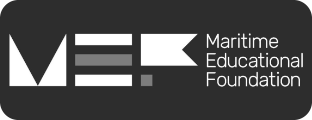Coming Ashore Podcast Episode 10 - Richard Wasson
Posted on 16 July 2020 by Marine Society
On Episode 10 of the Coming Ashore podcast, Darrell Bate is joined by Coming Ashore mentor Richard Wasson.
Would you rather listen? Listen on Spotify and ITunes. Or watch on Youtube.
Click here to find out more about the Coming Ashore programme. Where you'll find professional guidance, mentorship and work experience opportunities for transitioning to a career on land.
Darrell Bate:
Well, hello, ladies and gentlemen, and welcome to another podcast from the Coming Ashore program. My name is Darrell Bate from the Marine Society, and it's my pleasure to host this edition to introduce one of our newest mentors, Richard Wasson.
But before we move on to that and hear about Richard's background, let me talk to you a little bit about the program itself in case you're new to it. You may be listening to us from any part of the world. You may be at sea. You may already be ashore. But this is a new program that the Marine Society are running and it is to support any seafarer who's considering making that transition to a shoreside role in a maritime sector. And what we want to do is really provide as wide a range of support through resources, mentoring, help with CVs, help with interviewing, book lists even, and then hopefully some work placements ashore. So really to give you that support that you need and give you some structure to your plans to coming ashore. We know that through research that has been conducted on the sector, that it's an area that seafarers are seriously lacking in and many of you struggle to make the right choices coming ashore. And we are here as the Marine Society to help to fill that void.
And so without much further ado, I want to move straight on to talking to one of our specialist mentors on the program and it's Richard Wasson. Hello, Richard.
Richard Wasson:
Hello, Darrell. How are you? Many thanks for welcoming me on. Yeah, after that introduction it's great to be here. It's great to be part of such a good cause.
Darrell Bate:
Thank you. And I can tell from that accent you're calling from across the water from England. Tell us where you are and then just tell us a little bit about your background and what attracted you to a seagoing life in the first instance, Richard.
Richard Wasson:
Yeah, sure. So I'm sitting currently just outside Belfast in Northern Ireland where I'm from. I'm actually from the Northwest of Northern Ireland. And I grew up always being around the water and sailing and just was in love with the sea. It's one of my first ever childhood memories has been out on a sailing boat with my dad. And I got very heavily involved in racing in dinghies, and then yacht racing, and that sort of thing.
And I never really thought of it as a career to be honest. And like a lot of people as time went on and my teams … my academic ability decreased as partying and enjoying myself increased, shall we say? And so I went to university and didn't really click with it that much. And I still had a yearning always to be around the water. And so I came home after a year at university and my dad sat me down and said, "Okay, what are you going to do now?" And I said, "I'm going to be a professional sailor." And there was a few odd looks from my mother and father and that sort of fueled my fire to do that. And headed out to Australia. Did some yachting qualifications and the rest is history, as it were.
Darrell Bate:
And so fair to say it wasn't in the family history. A lot of people that go to sea tend to have some seafaring connection in the family, but not so in your case, is that right?
Richard Wasson:
In a professional capacity, no. Very much recreationally. Boating was very much in my family's background, both my grandfather and my dad. But in a professional capacity, no. Very little seafaring in the family.
And interestingly, you didn't necessarily go down the standard Merchant Navy deck officer route, is that right? You focused more on the yacht sector. Can you talk us through that?
Richard Wasson:
I did, yeah. To be perfectly honest with you, I went away initially for a bit of fun and to have perhaps a gap year or two. That gap year turned into … well, it's kind of still going in a way, but it turned into 15+ years, really, with bumming about on boats initially, and doing a few deliveries and things, and becoming an airway instructor. And it was only then really through that, that I got on to the much, much bigger yachts. And I finished up my career as Chief Officer on a 90-meter exploration tug, which was built as a tug in 1969 and then converted to a yacht in the 90s and very much a world-cruising commercially-classed vessel, which we explored all over the world. It was a very, very interesting project to be a part of. Yeah, so I was on there for a good few … well, as Second Officer initially, and then as Chief Officer.
Darrell Bate:
So already a different section to the super yacht industry. You're talking about something that was, as you say, focused on exploration and in a very different working environment to being based out of Antibes and enjoying that sort of life then by the sound of it.
Richard Wasson:
Yes. Yes. Although we did a little bit of that, but not much thankfully. So our owners or owners that I worked with primarily on the big boats like that, thankfully were very adventurous and loved to travel, loved to see very, very remote places, which is fantastic. But obviously that adds the challenges to, for us as crew, in terms of the logistics, in terms of safety, in terms of what ifs. We did a lot of diving in the South Pacific in very, very remote areas. So yeah, we would have carried some very specialist medical equipment. We would have carried all sorts of very technical equipment at times, for doing that on technical personnel as well, if required. So yeah, it was very, very interesting.
Before that I worked on a sister vessel. And actually, believe it or not, my job was purely to run the toys on board. So, one of those toys was a 42-foot Nelson Tender with twin Caterpillar engines in it. So it was a yacht effectively. So I was the skipper and the engineer of that. And we'd cruise to high latitudes. And we went up to the Arctic all over Greenland, Norway, the Baltic Sea. And just had an amazing time exploring the world on it. But again, very technical. Very technical cruising, very technical vessels.
Darrell Bate:
So I'm getting the impression of a really interesting, varied life at sea. You've talked about working for some incredible kit, going to some distant places, but very different to perhaps a lot of our listeners who are on the deep sea routes, month-in, month-out, following a standard routine. So, given that background that you were in, what was it that attracted you or started you to think about coming ashore and actually leaving that industry and settling ashore side? What started you on that journey and then talk us through that.
Richard Wasson:
Yeah, so that's interesting. There's a couple of things there, one of which was age I would say, and just thinking, "Do I want to be doing this forever and ever." And the answer was actually, "No." I'd got a lot of the adventure … I was up to probably 32, 33, I guess, whenever I started thinking about it. And I'd had a lot of the travel bug and the adventure out of my system.
And then honestly, some little health niggles that were occurring just as a result of the intensity of the lifestyle. The amount of travel and the fatigue involved in it. And a lot of people see these yachts and think you're sitting drinking gin and tonics on the aft deck with the owners all the time. But unfortunately if you talk to anybody who's worked on a yacht, that couldn't be further from the truth. So yeah, it's a very busy lifestyle. Very busy lifestyle. So that was the lot of it, really. It was a couple of health niggles and I suppose, fatigue that was building up over time really. And then just thinking at this stage in life better sooner rather than later.
Darrell Bate:
Yeah. And I think a lot of our listeners will associate with those sorts of reasons that you've mentioned and the sort of things, age, health, and possibly family issues. So very common reasons why seafarers would want to make that change.
So, you're at this stage, you've got these issues going on and you start thinking, "What do I do?" So did you just jump ashore? Was it serendipity? What was the next step? Did someone help you? What was the next stage for you?
Richard Wasson:
Well, that's where I made some pretty horrendous mistakes.
Darrell Bate:
Ah! That's what we want to hear.
Richard Wasson:
Yeah, yeah. So I thought … because to be honest, I hadn't really had a job onshore since I was at school. I worked in bars and stuff when I was at school, but I never really had a "proper job" onshore. So I came ashore. I didn't really do an awful lot of planning, to be honest with you. And yeah, I did seek a couple of help here and there, but from people who didn't really attach to what I did. They didn't really get what I did. They didn't really get my qualifications, my background, my transferable skills, which I think is a massive thing.
And the first couple of years it didn't really go that well. I did set up a business and things, which was okay. I've always been into the mentoring and training side of things. That's always been my passion, even at sea, helping the crew and things. So I set up a small training company to help people with their careers. And that had big, big potential.
I'll be honest though, I didn't financially plan all that well. And therefore, because of that, I got sucked into what I would call the yo-yo syndrome of going back to see again. I'd get an email from a vessel that I used to work on and I'd think, "Yeah, that be great to earn a bit more money." And I ended up going back and forth and not really anchoring myself onshore that well.
Darrell Bate:
And just on that, because I think, again a lot of people will recognize that, that you describe the yo-yo effect. Is that legitimate? I mean, do you think someone can manage that sort of dual life? Or do you think actually that's … perhaps certainly in your case that wasn't sustainable, but do you think there is a place for maintaining sea-going short contracts and so on, and some kind of shore life? What would be your view on that?
Richard Wasson:
I think there is if that's what you're … Yeah. I mean, for me, it's all down to why are you coming ashore in the first place? Of course there are people that do that, and it's quite an uncertain life in a way, because you never really know when the next contract is coming. And I know for certain at the minute there are people who do that. There's quite a lot of people who do relief large-yacht work in terms of Captains, especially. They do transatlantics and that sort of thing.
But for example, the last six months, those people, their work has completely dried up because they haven't been employed. They're generally self-employed, so you're running your own business doing that. I have done that a little bit. It's extremely hard to plan your life doing that because invariably you will be stepping into a role perhaps for someone who's had maybe a death in the family. They have to jump ship and go home really quick. And the company's looking for a Captain tomorrow. Or you get an email saying a Captain's fallen sick, would you come and fill the seat, or a Chief Officer, whatever it may be.
So it can be quite difficult to plan. But it can be done, if that's what somebody … if they don't mind living that way. The flexibility means you can take a lot more leave off. So you can say, "Right, I'm going to block book my diary and take the next six months off and not open up my diary for contracts until after that." It really depends. If you've got your finances sorted onshore, if you have another kind of passive income, I'm sure, whether it's property rentals whatever, possibly that could work. But yeah, it's each to the individual really. It wouldn't be for me, that sort of life, really.
Darrell Bate:
No. Well, thank you. Yeah, very sensible advice-
Richard Wasson:
I'd rather be at sea on a proper rolling contract that I would be able to plan.
Darrell Bate:
Trying to juggle too many balls, yes. No, I totally recognize that the practicalities or impracticalities that that could pose.
So coming back to yourself, as you say, you'd started this yo-yo effect. And then you obviously did make a proper transition. Was there something that … a catalyst, a particular thing that finally made you make that step ashore and turn your back, as it were on the sea again?
Richard Wasson:
Yeah.
Darrell Bate:
What was that?
Richard Wasson:
Well, I suppose one of the things that I realized that I hadn't really done properly is a bit of self-exploration, for want of a better expression, to figure out what I want for the future. And it was only then when I did that, I realized me going back on board just wasn't fitting really with my long-term plan. And I was procrastinating and developing a proper career or business.
And once I'd done that I realized that whenever I went back, the last boat that I was on was just back in … well, it's a while ago now too. A couple of years ago I did a little bit of work, 2018, and I remember because I was more self-aware when I stepped foot on the deck of that boat, I felt like a bit of a sellout. I'd sold out on my own plan, if that makes sense.
Darrell Bate:
Yeah, it does.
Richard Wasson:
And my feet hit the deck and I was like, "I'm here for the wrong reasons. I'm only here to top up my bank account." Which of course can be a very valid reason for if you've got a plan after that. But it wasn't fitting with my personal goal of having a career and a business onshore.
Darrell Bate:
Yeah.
Richard Wasson:
So it took that really for me. It took that self-work to figure out what is my longer term plan. And I think that's where a lot of people miss out.
Darrell Bate:
Yeah. And without, as I say, the support there, someone to get alongside and to give you that helping hand and clearly you found that route only after making some mistakes along the way. And actually, I think that's one of the benefits you bring to the program, Richard, is those earlier mistakes that you've learned from.
And I know that you've developed for yourself, and the people you already work with, a particular approach to this whole concept of planning your transition ashore and along the lines of a passage plan analogy. I know there's some material you've already posted yourself on the internet, which our listeners can find if they search for you on YouTube and so on. But just for the benefit of this podcast, could you just briefly summarize the, I think it's the four elements of that passage plan analogy as applied to people transitioning ashore?
Richard Wasson:
Yeah. Yeah, sure. Yeah, definitely. I've become pretty passionate about this subject throughout, not just my own journey, but also hearing and seeing colleagues have similar struggles. And so as a result of that and as a result of, as I mentioned, my background and my main interest always has been the instructing and mentoring and training side of things. So I went off and did a career coaching qualification myself and as a result of that, I designed a system for people transitioning ashore. And as you say, very much like a passage plan. I see the career a bit like an ocean crossing in that we're setting out … We can very much plan what we're going to do, but we don't always know when we'll have to alter course. We're not absolutely sure what's going to happen on that passage, i.e. the career. However, that doesn't mean we don't plan. It means that we got a plan and then make the alterations as necessary.
So what I've come up with really is a way for people to figure out what they're very much suited to and what they really want to do. And therefore they can align that with their journey and who they're going to talk to and what they got to do. And therefore at the end of the day, there'll be much more content and it will be much more satisfying to do that rather than coming ashore, jumping into the first … getting onto the job board, applying for the first job, getting the first job, and then thinking, "This does not suit me one bit."
So, yeah. So to answer your question, the process I've come up with any Deck Officer will be familiar with the acronym APEM: Appraisal, Planning, Execution, and Monitoring, for a passage plan. And mine is very similar.
The A is for Appraisal, and that's really a self-inventory of working out where am I now? What have I got to offer the world, the industry, whatever it may be? And sitting down and thinking through various practical pieces, how much money do I need to earn? What sort of working environment do I want to be in? What working conditions do I want to be in? And family, taking family into account. Do I really want to be at home all the time, or am I willing to travel a few days a week? Because the bottom line is a lot of people, and I've seen this happen so many times, a lot of people come ashore, they jump into a job and they don't realize they could actually be away from home more throughout the course of a year than they were when they were working four months on, two months off or three on three off. And they're like, "Shit, what have I done? I'm actually away from home more."
So, the appraisal bit is about working all of that out, actually sitting down with a pen or a piece of paper and getting it out there and figuring out right, what will suit? Because there's obviously a reason people are coming ashore. So, that is the big question. What is that reason? And there's no point going from being discontent in one area at sea and still being discontent in that area when they come ashore. That's really what the appraisal piece is all about.
Then the P is for Planning. So, that's really starting to put it into action. You've got the appraisal piece done, then you're figuring out, right, who do I need to talk to? Let's get my CV updated. Let's get a cover letter. Let's get LinkedIn sorted out. All those practical things. And figuring out is there perhaps, like you mentioned as part of the Coming Ashore, there's the placement scheme. Could I be doing a bit of a placement? Could I go and even visit a company's office to figure out is that something I want to be doing? Let's go and talk to Marine Surveyor. Maybe even just spend one day with them, figure that out. And LinkedIn is brilliant for this these days to be able to connect with those people.
And then the E for Execution is really putting that plan into action and starting to apply for jobs, getting those first jobs. And I say first jobs because it's not impossible to walk into your dream job you're going to be in for 30 years. But I think a lot of people, especially higher up the ranks, Chief Officers, Captains, Chief Engineers, they got to remember they're not going to come ashore and walk into a CEO position. It's a bit of a ladder again, if that makes sense. So the first job that we get onshore is definitely not going to tick all the boxes, let's say. It's figuring out where that flexibility lies as well. So yeah. The E for Execution.
And then there's the C. My acronym has changed slightly from the APEM to APEC. So I've got A, P, E, C. And a C is for Commitment. Actually committing to what you've figured out in the appraisal piece. So I mentioned earlier about me feeling like I sold out, which is what the exact feelings I had of I've sold out on myself, I've sold out on the plan. So the commitment piece is about committing to the plan and not jumping back on ship. [crosstalk 00:20:36].
Darrell Bate:
It has to be the hardest.
Richard Wasson:
Yeah. Getting that email from … perhaps you possibly build up a really good network and you're probably still sought-after to go to sea if you've had a good career, and this is the challenge. I found I was getting regular emails saying, "Come on back to sea. What's wrong? Here's a wee golden carrot." And the commitment piece is about figuring out how does that fit in and not doing that. If the goal is to stay and to spend more time with your family in the longterm, then perhaps that jumping away back to sea is not the committed thing to do. The committed thing to do would be to see it through, albeit if you're earning a bit less for a few years, to stay committed to that longer term goal. In 10 years, 15 years, you could be up the ranks in an office job. So, yeah. That's it in a nutshell.
Darrell Bate:
Well, that is a fantastic analogy that I know many seafarers will recognize and find useful. I mean, so much common sense and yet so difficult to actually implement. Particularly if you're on your own, if you don't have someone working alongside you, someone in that coaching, mentoring role, supporting you. Which is coming back to the project, the program Coming Ashore, that's what we want to provide. And having just heard from Richard there describing that process, that is the sort of expertise that individuals can access for free on the program. So really, really benefit.
And I know you mentioned earlier, you studied as a career coaching consultant. And I do know an interesting fact about you, Richard, that you appeared a few years ago on a TEDx talk.
Richard Wasson:
I did. I did.
Darrell Bate:
And we may, if technology allows, try and insert a short audio clip from that, just for the benefit of our listeners, because there was some real sage wisdom that's applicable today. So we will attempt to include that.
So just bringing it up to date. You've joined us, as I mentioned, what particularly do you think you can offer Coming Ashore members? Is there a particular area of expertise other than the broader coaching skills, or is there something specific that you feel you can bring that someone listening to this might feel that you are someone they'd like to work with?
Richard Wasson:
Yeah. Yeah. Well, I suppose a couple of things. I came ashore. I have worked in yacht management, so I did a bit of that onshore. When I came ashore as well, I went to the South of France, so I have a good bit of knowledge in terms of that. I get contacted quite often about that. People want to hear more about what it's like to manage vessels, and how that works. And then as you know, I now work for HM Coast Guard for the MCA. So I obviously have quite a bit of information, knowledge there, et cetera, that may be able to help someone. I'm not too sure.
One of my key eye openers there, and it actually took me two attempts to get into the coast guard, believe it or not. I applied with a very naive view of having a seafaring background. And I didn't realize what it takes to apply for a civil service job or a more corporate job. And I think many of us at sea are possibly like that. And I thought because I had a seafaring ticket that said MCA on it, I would be a sure in for a job with the MCA.
I didn't realize how bureaucratic it is, and how bureaucratic a lot of companies can be onshore. And it's very important to get your method of applying, your paperwork, and your script very, very, very honed because what we don't realize as seafarers, a lot of the times, whenever we come ashore, the people who are going to see our applications at first, at the first hurdle, very often have no connection to the sea. They're possibly the HR department and they're looking for certain things and they're looking to tick certain boxes and there's a very key way of doing that. And as seafarers we may not be aware of that.
Darrell Bate:
And we certainly recognize on the program, the inquiries that we get are very much along those lines about how do I write my CV? How do I network? How do I prepare for an interview? So you've absolutely touched on those very real issues that there's just a way to doing these things. And the CV gets you through that door, but then you've actually got to perform in an interview situation. So good to know that that experience is something you can bring to bear in those that you end up mentoring and coaching. So thank you for sharing that, Richard.
So we're coming to the end now, and I just wanted to thank Richard for his time and sharing some of his stories and his expertise.
Richard Wasson:
No problem.
Darrell Bate:
And just to explain the next stage to our listeners around the world. You should register your interest on our website in the first instance. That's marine-society.org, and there's a link to Coming Ashore that will register you. And then we will follow that up and you'll get access to a special closed private LinkedIn group. And you can access all our podcasts and subject expert webinars and other resources.
We are also on all the usual channels, YouTube, Spotify, iTunes, our content under Coming Ashore. So do check us out and subscribe to get the latest updates. And do contact us, as I say Richard or myself or our other mentors. So we are here to help and just to chat and respond as you need. So just a final word from you, Richard. To any of those who are listening, if they're just considering those steps, little word of advice, lastly from you to encourage them to join the Coming Ashore program.
Richard Wasson:
Yeah, sure. So my biggest word of advice would be even if you're not thinking of coming ashore this year, if you're knowing that you're coming ashore at some stage, now is the time to start planning. You can never plan ahead enough, I believe. And if you're still at sea, say if you know you have two contracts to go and you know you've got leave coming up, then your leave would be the perfect time to get really planning and to contact and to start speaking to the Marine Society because you can use that leave in a relaxed manner. You're not fighting to get a job, I need to earn money, that sort of thing. You've got the time on your hands. And that's really what it's about is having a bit of time and planning ahead.
Darrell Bate:
So true. Well, thank you again. And so it just remains for me to wish everyone safety, wherever they may be, at sea or onshore, or waiting to go back to sea or wherever you may be, and we look forward to welcoming you onto the program at some point in the future. Thank you very much.
This podcast was presented by the Marine Society. If you want to find out more about the coming ashore project, be sure to subscribe to the channels podcast on YouTube, Spotify, iTunes. Visit us on Instagram, Twitter, Facebook, LinkedIn, or visit the Marine Society website.
For more information on the Marine Society's Coming Ashore program, including information on mentorship, please visit our Coming Ashore page.





